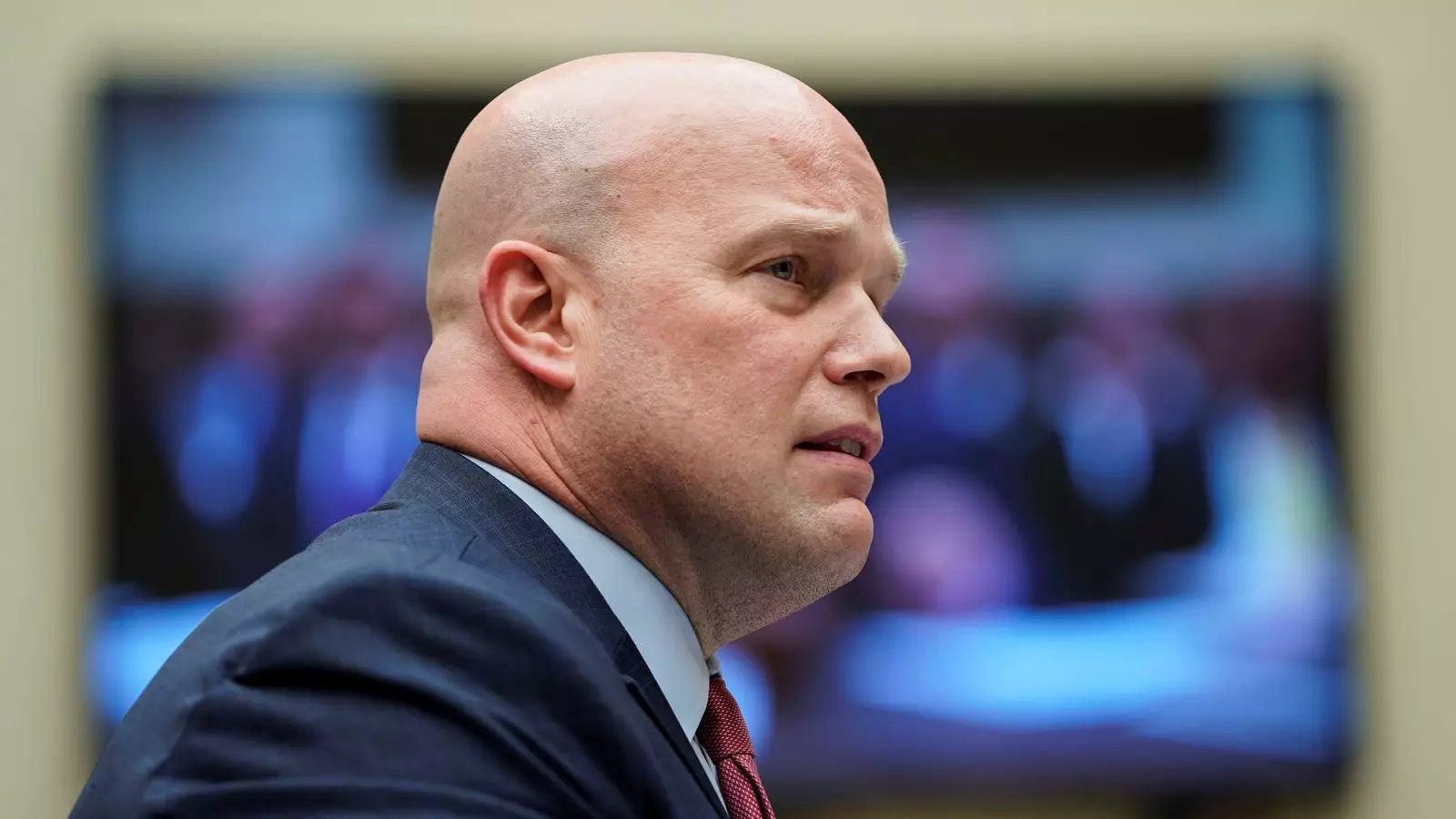The recent directive from the United States to NATO allies, including the UK, to allocate a staggering 5% of their Gross Domestic Product (GDP) towards defense spending is not simply a bureaucratic expectation but a belligerent call to arms. This escalation mirrors an increasing anxiety over global security dynamics, compelling member nations to reassess their military expenditures in the face of perceived threats from Russia and other adversaries. As Matthew Whitaker, former U.S. ambassador to NATO, puts it, this figure—5%—is not merely a guideline; it represents a new paradigm of military commitment that could reshape the landscape of international relations.
The Push for Escalation: Wrong Priorities?
At a time when governments are grappling with pressing social issues such as healthcare, housing, and climate change, the insistence on such a hefty military budget raises critical questions about priorities. Security is undeniably important, yet focusing extensively on defense spending may neglect the vital investments required in human capital—education, health, and welfare. The rhetorical push for 5% reflects a military-first mentality that prioritizes weapons over well-being. Furthermore, the overwhelming pressure on NATO allies to comply with the U.S. request elicits concerns about sovereignty and independent defense strategies, particularly for countries like the UK that historically have been at the forefront of addressing global security challenges.
The Potential Consequence of a Military Arms Race
The ramifications of shifting defense spending to such exorbitant levels can trigger an arms race among NATO members, compelling them to respond to one another’s escalatory budgets. As former Dutch Prime Minister and NATO Secretary General Mark Rutte highlights, the expectation is that increased spending is necessary—but what are the implications? A culture of distrust could reemerge, leading to heightened tensions both within the alliance and with external adversaries. The belief that increased military expenditure automatically translates to greater security is a flawed assumption. In reality, it often breeds hostility and increases the likelihood of conflicts, ultimately undermining the very peace these measures intend to uphold.
Internal Unrest: Conflicting Messages within the UK
The internal discord evident in the UK, where Prime Minister Boris Johnson had previously only spoken of ambition regarding military spending increases, adds further complexity to the discussion. The UK’s hesitance to commit to elevating its defense budget to 3.5% suggests that policymakers recognize the impracticality of such a hike even amid rising pressures. Are government officials truly endorsing this titanic shift in spending, or are they merely toeing the line suggested by the U.S.? The discrepancy between rhetoric and reality could lead to significant political fallout, fostering resentment among a public caught between the demands of intensified military spending and the pressing social issues that affect daily life.
Ukraine and Russia: A Sensitive Balancing Act
Support for Ukraine and a reinforced posture toward Russia introduce another layer to the equation. While these geopolitical realities compel NATO allies to bolster their defense budgets, the question should be: at what cost? The call for higher defense spending must not come at the expense of meaningful diplomatic engagement or constructive preventive measures. A delicate balancing act is required, one that combines deterrence strategies with diplomatic outreach, fostering genuine alliances rather than mere transactional relationships. As Whitaker articulates, this directive is framed as a necessity, but we must scrutinize whether such activism genuinely enhances security or further complicates the security landscape.
A Call for Rethinking the Military-First Mentality
The push for a 5% defense spending commitment unveils a deeper malaise within NATO: the reliance on military capability as a panacea for complex global issues. In adopting a 5% military expenditure model, NATO allies, most notably the UK, risk overspending while under-investing in crucial human initiatives that drive sustainable development and long-term security. An ideological pivot towards multi-faceted security strategies—encompassing political, social, and economic considerations—may provide a more holistic approach to modern security threats.
In the long run, will we see political leaders bold enough to reimagine NATO’s focus or remain shackled by an archives of outdated military conventions? Time will tell, but one thing is certain: the voices calling for a 5% commitment are echoes of an antiquated doctrine that may reshape, but not necessarily enrich, the future of global stability.

Leave a Reply